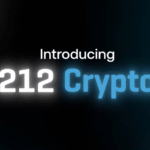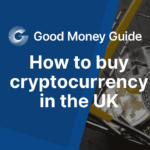Hey, ever heard of stablecoins? Yeah? Kind of? Alright, let me break it down for you.
What is a Stablecoin?
So, stablecoins are like the chilled-out cousins of regular cryptocurrencies. While Bitcoin and Ethereum bounce around like they’re on a sugar rush, stablecoins try to keep it cool—sticking close to the value of something more, well, stable. Usually, that’s a fiat currency like the US dollar, or sometimes a commodity like gold.
You’ve probably heard of Tether (USDT) or USD Coin (USDC)—those are classic examples. They’re meant to always be worth about $1. They get their stability either by actually keeping a pile of dollars in the bank or using clever crypto and smart contracts to mimic that.
What’s the Catch—Any Regulatory Risks?
Oh, absolutely. Governments are very interested in stablecoins right now—maybe a little too interested. The big issue? Trust. Regulators want to make sure these coins are actually backed by what they say they are. Like, if someone claims there’s a billion dollars sitting in a vault somewhere, there better be a billion dollars sitting in that vault.
Plus, if stablecoins get too popular, they could mess with central banks and monetary policy—like giving people an alternative to good old pounds and dollars, without any oversight. That makes regulators twitchy.
What If Something Goes Wrong?
Ah, the scary bit. If a stablecoin has vulnerabilities—maybe the reserves aren’t really there, or the tech behind it breaks—it can lose its peg. Like, instead of being worth $1, it suddenly drops to 50 cents. That happened with TerraUSD in 2022. One minute it was solid, the next minute—poof! It collapsed, taking a whole bunch of crypto projects with it. Basically, it’s like a financial game of Jenga.
Do Stablecoins Always Stay at $1?
In theory, yes. In practice… not quite. They try to stick close to $1, but they can wobble a bit depending on what’s going on in the market. If people are panicking and selling fast, it might drop to $0.98. If demand spikes, maybe it goes up to $1.01. It’s usually minor, but still something to keep an eye on.
Is Ethereum a Stablecoin?
Nope, not even close. Ethereum’s great, but it’s as stable as a toddler on a trampoline. It’s the fuel for running apps and smart contracts on its blockchain, but its price jumps around based on what the market’s feeling. Not designed to be steady—it’s more like the engine of the crypto world than the anchor.
What’s the Deal with Commodity-Backed Coins?
Great question! Some stablecoins are backed by physical stuff—gold, oil, maybe even real estate. These are called commodity-backed coins. They work similarly to fiat-backed ones, but instead of dollars, there’s a pile of gold bars somewhere (hopefully) keeping the value steady. It’s a bit like owning a digital receipt for something tangible.
Just remember: whether it’s backed by cash, crypto, or gold, the whole system only works if you trust the people behind it. So always do your homework.
So yeah, stablecoins: crypto’s attempt at playing it cool. Want to dabble with them? Just make sure you know what’s under the hood first.
But really, if you want to stablecoins as an investment, you are safer buying an ETF that tracks the price of USD, Gold or Oil instead. They may be a little more expensive, but they are much safer.

Richard is the founder of the Good Money Guide (formerly Good Broker Guide), one of the original investment comparison sites established in 2015. With a career spanning two decades as a broker, he brings extensive expertise and knowledge to the financial landscape.
Having worked as a broker at Investors Intelligence and a multi-asset derivatives broker at MF Global (Man Financial), Richard has acquired substantial experience in the industry. His career began as a private client stockbroker at Walker Crips and Phillip Securities (now King and Shaxson), following internships on the NYMEX oil trading floor in New York and London IPE in 2001 and 2000.
Richard’s contributions and expertise have been recognized by respected publications such as The Sunday Times, BusinessInsider, Yahoo Finance, BusinessNews.org.uk, Master Investor, Wealth Briefing, iNews, and The FT, among many others.
Under Richard’s leadership, the Good Money Guide has evolved into a valuable destination for comprehensive information and expert guidance, specialising in trading, investment, and currency exchange. His commitment to delivering high-quality insights has solidified the Good Money Guide’s standing as a well-respected resource for both customers and industry colleagues.
To contact Richard, please see his Invesdaq profile.




